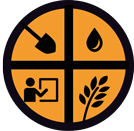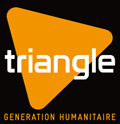AREA OF EXPERTISE

Multisectoral

AREA OF EXPERTISE

Multisectoral
FUNDING
Our aim is to improve the living and hygiene conditions of almost 1,500 disabled and/or vulnerable elderly Saharawi refugees in the camps of Aoussert, El Ayoun, Dakhla, Smara and 27 Fevrier, South of Tindouf.
After three decades living in refugee camps, extremely precarious conditions, lack of medical care and absence of understanding about disability, all the disabled people in the camps are suffering a situation of heightened distress.
The Saharawi authorities and the various partners working in the area have made true efforts to help people with certain types of disabilities: construction of a centre for the disabled, implementation of income-generating programmes (small shops and bakery, etc), improved support and attentiveness to disabled people. Despite such efforts, the most vulnerable individuals (bedridden, multi-handicapped or very fragile elders) are still in dire straits owing to lack of equipment that could ease and improve the quality of their lives.
Specific objective: Improve the living and hygiene conditions of almost 1,500 disabled and/or vulnerable elderly Saharawi refugees in the camps of Aoussert, El Ayoun, Dakhla, Smara and 27 February, south of Tindouf.
Triangle has been involved in helping disabled people since 2001. Till recently, the organisation';s action focused on Special Needs centres. While support to such structures remains essential, Triangle has also decided to help those who cannot access the centres. Through this second stage, we aim to improve the daily lives of the beneficiaries by supplying them with equipment, and strengthen local care capacities: the families, the helpers, the women from the social services already involved at various levels, but also the teams from the health and special needs centres who are potential actors of this support network.
Hence, an additional objective of this project is to develop knowledge about disabled people';s environment outside of special care structures.
In response to the needs observed, Triangle has decided to continue the project: “purchase and distribution of specific equipment” that has already considerably improved the living conditions of the disabled people or vulnerable elderly people identified.
This equipment will now be provided to disabled and aged people who were absent during the identification phase of the previous project. Equipment will once again feature anti-bedsore mattress, orthopaedic pillows, draw-sheets & protective bedding, 2 pairs of fitted sheets, 2 pairs of flat sheets, a pair of forearm crutches, a pair of axillary crutches, a walking stick, ergonomic glasses, a set of 6 sensorial balls, a sponge-bag set and towels.
The equipment will be distributed individually and training will be provided to ensure correct use. Simultaneously, the beneficiaries'; identification forms will be completed, allowing us to provide appropriate individualized care. Follow-up sessions will also be organized, after distribution, to check skills acquired during training and good use of the equipment.
Triangle will concurrently organise and implement training and information sessions for the families and social assistance women. The sessions will include identifying and teaming up with potential new actors.
Up till now, the identification process has taken place in 4 willayas and in the "27 février" camp. Two Triangle teams have visited the people listed by the social workers. These visits, organised directly in the people';s khaimas (tents), have enabled us to decide which equipment is required per person.
A team describes their work:
"Led by a social worker, we walk through the sand surrounding the khaimas. The social worker points out where each beneficiary lives. The camp is enormous and we only know the beneficiaries'; names and district so the social workers'; presence saves us a lot of time. They are clearly happy to take part in the project and their presence by our side demonstrates the importance of their role throughout the year with the families.
We enter a khaima and begin the greeting ritual. Then we get to work, sitting besides the beneficiary, asking questions. It is often the daughter who answers for her parents, showing how she attends to them, demonstrating the fact that they are well cared for. Little by little, other members of the family join us to offer their opinion and answer our questions. Then we run a few tests to confirm the answers. The family is even more grateful when we can offer some advice. We arrange an appointment for the distribution in September, say goodbye and move on to another khaima.
The social workers and the families are delighted that we take the time to meet each beneficiary. For these people, it is important that we do not forget them".